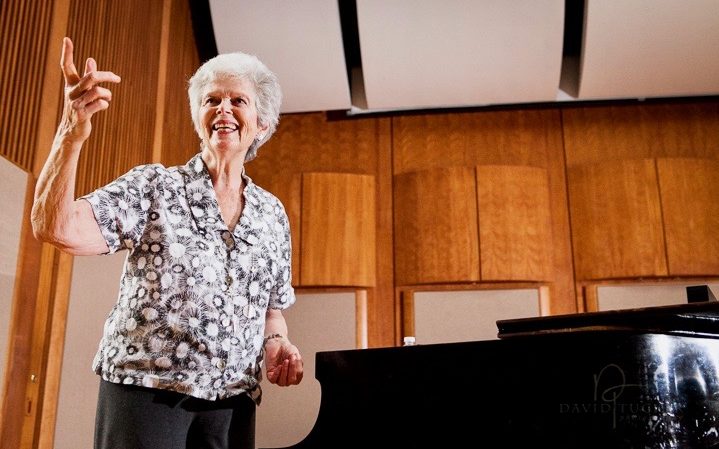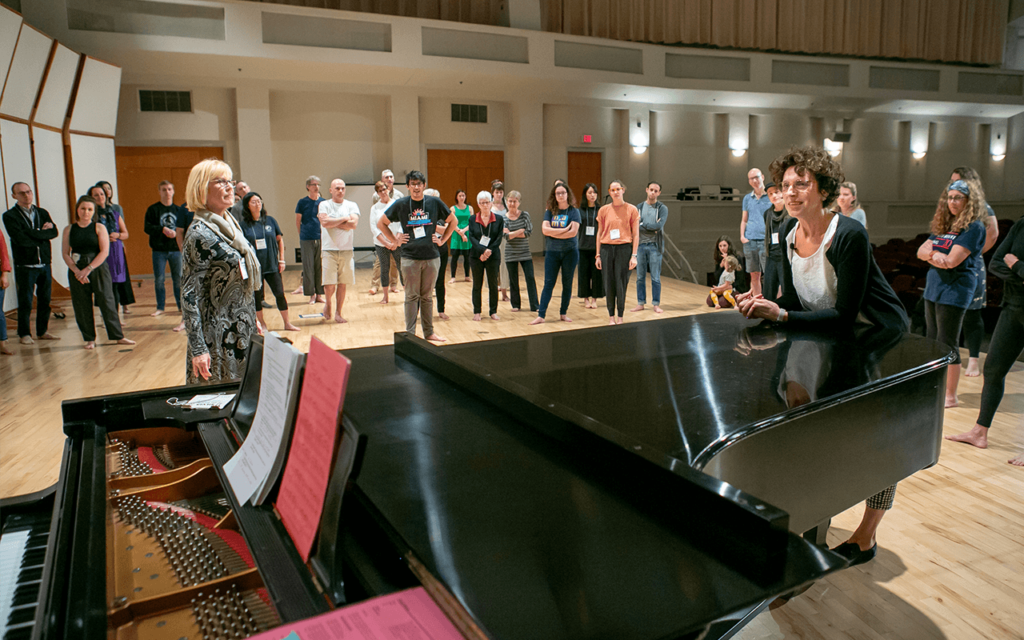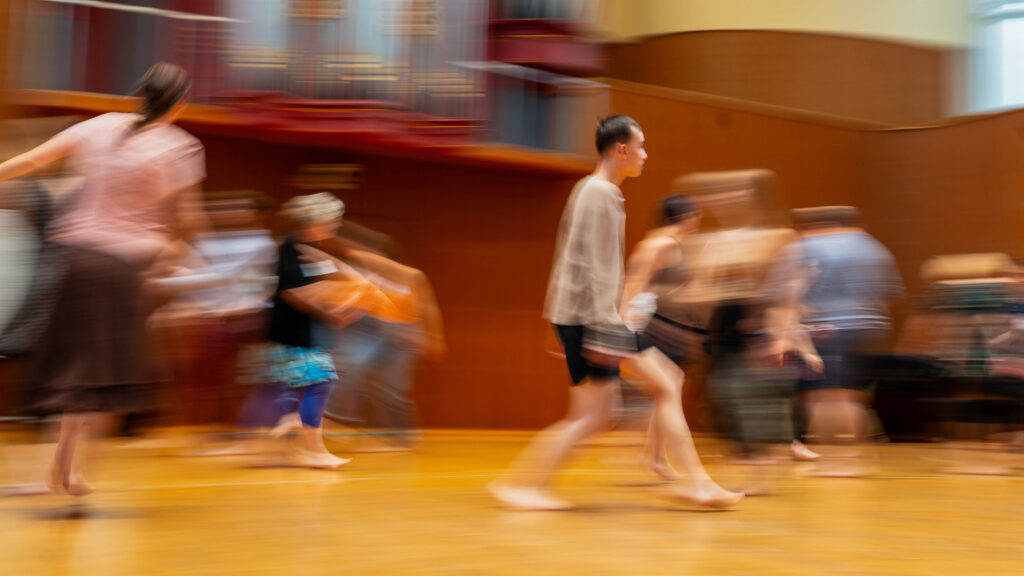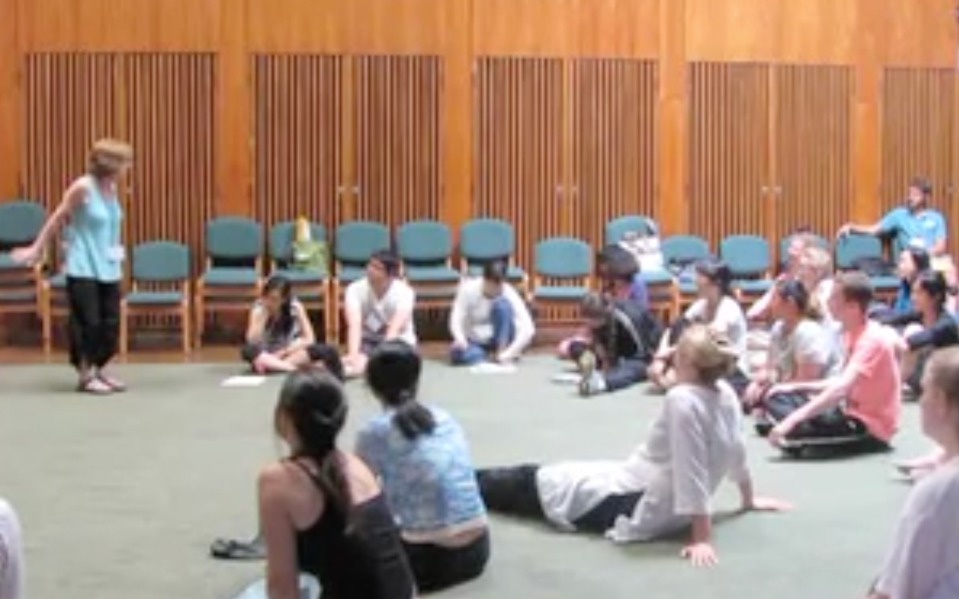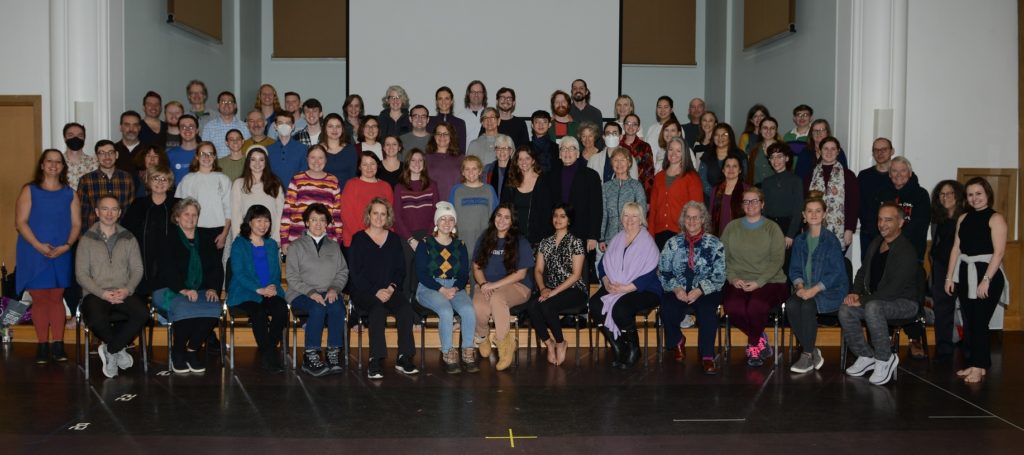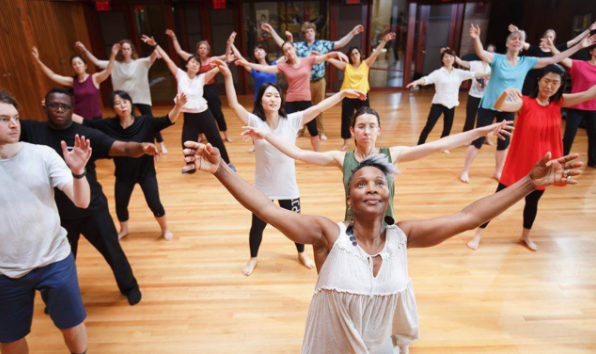TaKeTiNa: Entering Polyrhythmic Patterns
With C. Fabian Bautz, Diploma Conservatory Munich
Recorded June 24 and 26, 2010
This class, recorded live at the 2010 DSA National Conference in Cambridge, MA, was led by C. Fabian Bautz, Diploma Conservatory Munich.
As Bautz explains, "TaKeTiNa (created in 1970 and developed by Reinhard Flatischler, Austria) is, in many ways, completely different from Eurhythmics, although completely dependent upon rhythm."
"A central feature of TaKeTiNa is the simultaneous engagement of the hands (via clapping patterns), feet (via stepping patterns), and the voice (via syllables). The syllables and rhythm patterns merge the polyrhythmic movements of our body parts."
Additional Resources for "TaKeTiNa: Entering Polyrhythmic Patterns"
Featured Videos
Beginning Eurhythmics
With Lisa Parker (2012)
Duration: 1:03:47
Members Only Resource
Experience a Dalcroze education class from the 2012 National Conference.
Watch Video... Making Joyful Connections
With Silvia Del Bianco (2020)
Duration: 48:34
Members Only Resource
In this "joyful beginning" to the 2020 National Conference, see participants become more comfortable with—and conscious of—the larger group, many of whom they are meeting for the first time.
Watch Video... The Tempo of You
With Stephen Neely (2024)
Duration: 1:16:49
Members Only Resource
In this 75-minute collaboration, we will explore the idea of a personal inner tempo and then consider the challenge of “being music” that is at tempos more-than and less-than our authentic selves. How am I to feel the reality of another? With examples from Bach, La Bottine Souriante, and Satie, we will consider the difference between playing the notes of and being the music of another.
Watch Video... Beginning Solfège
With Cynthia Lilley (2010)
Duration: 1:02:08
Members Only Resource
Experience a Dalcroze education class from the 2010 National Conference.
Watch Video... Children's Demonstration Class
With Lauren Hodgson (2023)
Duration: 1:05:40
Free Resource
During this demonstration class, Dalcroze students from the BW Community Arts School demonstrate a variety of activities from their studies. Students range in age from 6–12.
Watch Video... Introduction to Eurhythmics
With Annabelle Joseph (2012)
Duration: 55:34
Members Only Resource
Experience a Dalcroze education class from the 2012 National Conference.
Watch Video... 